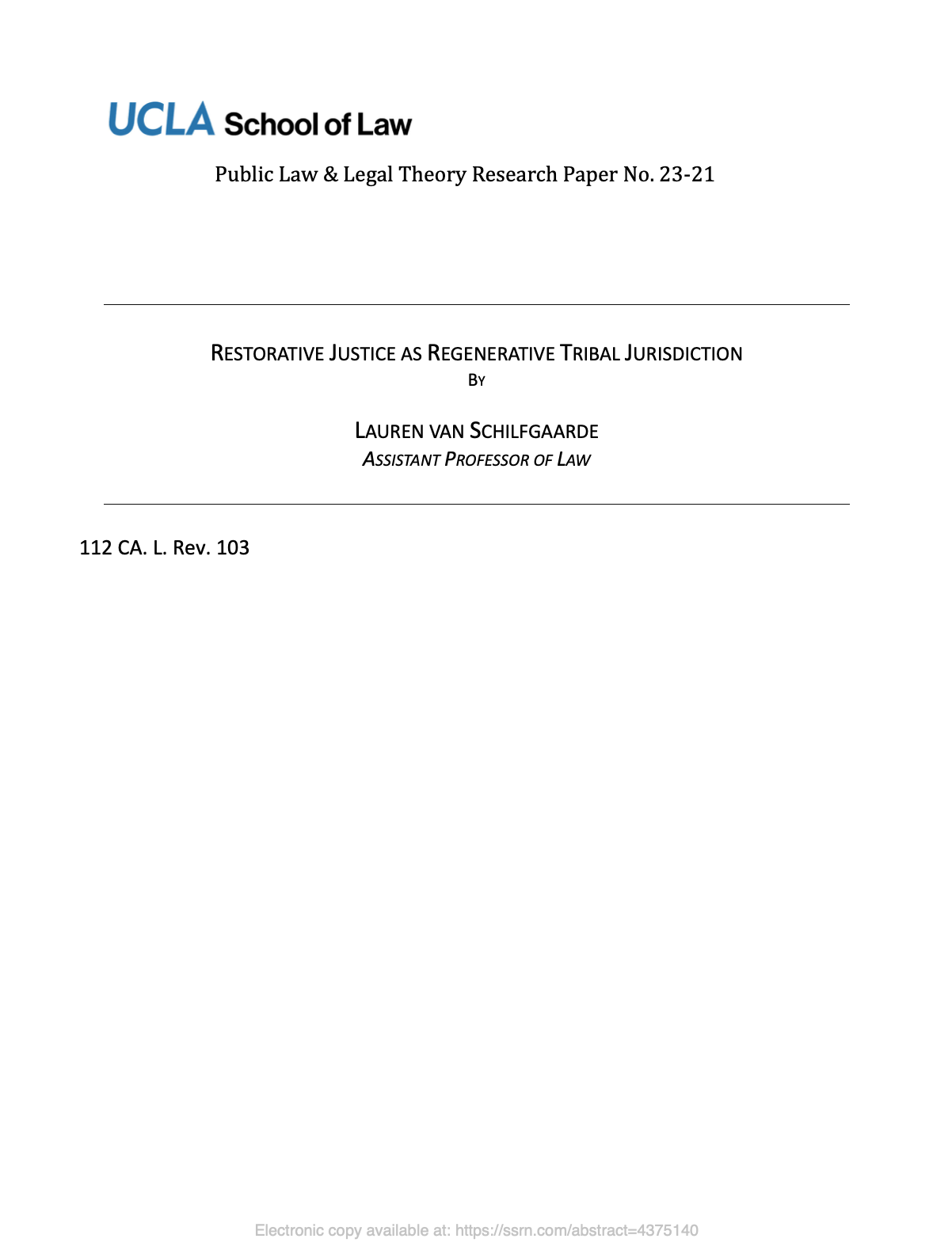Restorative Justice as Regenerative Tribal Jurisdiction
For more than a century, the United States has sought to restrict Tribal governments’ powers over criminal law. These interventions have ranged from the imposition of federal jurisdiction over Indian country crimes to actively dismantling Tribal justice systems. Two particular moves – diminishing Tribal jurisdiction and imposing adversarial approaches on Tribal courts, respectively – have had particularly devastating impacts on Tribal justice and criminal governance systems. In the contemporary era, these developments have severely constrained Tribal approaches to criminal justice reform. Yet in recent years, we’ve begun to witness new trends at the Tribal level. Tribes are increasingly embracing Indigenous-based, restorative justice models, which have regenerated Tribal jurisdiction and enhanced the wellbeing of Tribal members. These trends are both important in their own right, and as an example of Indigenous anti-subordination in criminal justice reform. Indeed, for Tribes, the leading contemporary response to historical oppression is collective “self-determination.” True self-determination requires both internal and external legitimacy. As Tribes pursue freedom from settler-colonial constraints, this Article reveals how restorative justice offers opportunities to “Indigenize” Tribal systems while also reclaiming jurisdictional powers, for the benefit of Tribes and Tribal members, alike.

